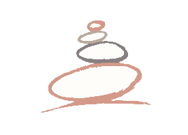Key Stages of Residential Rehab Treatment
Key Stages of Residential Rehab Treatment
At the Ayurva Clinic we have worked with many clients that benefit from private residential rehabilitation and drug or alcohol detoxification. We help addicts, and their loved ones, navigate their way through what can feel like a minefield of addiction treatment. At our six bedded residential rehabilitation clinic in Bulgaria we ensure that rehab suites your personal needs.
Whether you are already aware of what you are looking for, or if this is the first time you have thought about treatment, Tower Counselling are here to help you. We offer free advice and facts about a variety of drug and alcohol rehab treatment approaches and rehab clinics in England and Bulgaria, therefore ensuring you select the most appropriate route to your recovery.
Tower Counselling understands that making that initial call can be difficult, but please feel reassured that there is a possible solution, even for the most complicated of circumstances
Key Stages to Addiction Rehab Treatment
Key Stages to Addiction Rehab Treatment
Within this section of our website we explain the key stages of addiction rehab treatment you will be likely to receive.
The Triage Assessment is an assessment that identifies the seriousness of a person's substance or alcohol misuse problem, the urgency with which treatment is required and any immediate risk of harm. In addition the assessment will identify addiction needs such as mental health needs, housing needs and any potential blocks to successful treatment.
An effective assessment of the needs of the client is pivotal to the effective use of services and therefore needs to be comprehensive and complex. Triage assessment usually covers:
- Alcohol or drug consumption
- Dependence
- Related problems
- Co-existing health conditions, including co-existing drug and/or mental health problems
- Risk of harm to self and others
- Urgency of treatment
- Motivation and readiness to change
- Health Problems
- Mental Health requirements
- Certain personal data
Detoxification
, or rather ‘detox’ for short, is the physiological or medical removal of a toxic substances such as alcohol or heroin. It can addictionally refer to the period of withdrawal during which your body returns to homeostasis after long-term use and abuse of an addictive substance.
Detoxification or 'detox' involves taking a short course of a medicine which helps to prevent withdrawal symptoms when you stop drinking alcohol or taking addictive drugs. The most commonly used medicine for detox of alcohol is chlordiazepoxide. This is a benzodiazepine medicine. For heroin it is subutex or methadone.
Primary Care
is the time in which you first enter a residential treatment centre. During this intensive primary stage of treatment you will start to address your reasons for turning to drugs or alcohol both in group therapy and one to one counselling. At this time you will also agree a ‘care plan’ with your named therapist or drugs worker. This ‘care plan’ will form the basis and direction of your ongoing treatment and recovery.
Contact us for more information
Secondary Care
is a key component of any treatment offered to a client. It forms the basis of your transition from structured primary care to back home and live back in the community. During this stage of treatment your therapy will focus on life without drugs or alcohol and how you can remain substance free when back in society.
Aftercare
is the service offered to clients when they are back home. Aftercare can consist of either weekly support groups, counselling or visits with your named drugs worker or counselor. Aftercare can last for approximately a year after treatment, however, if the client require, it can last longer.














